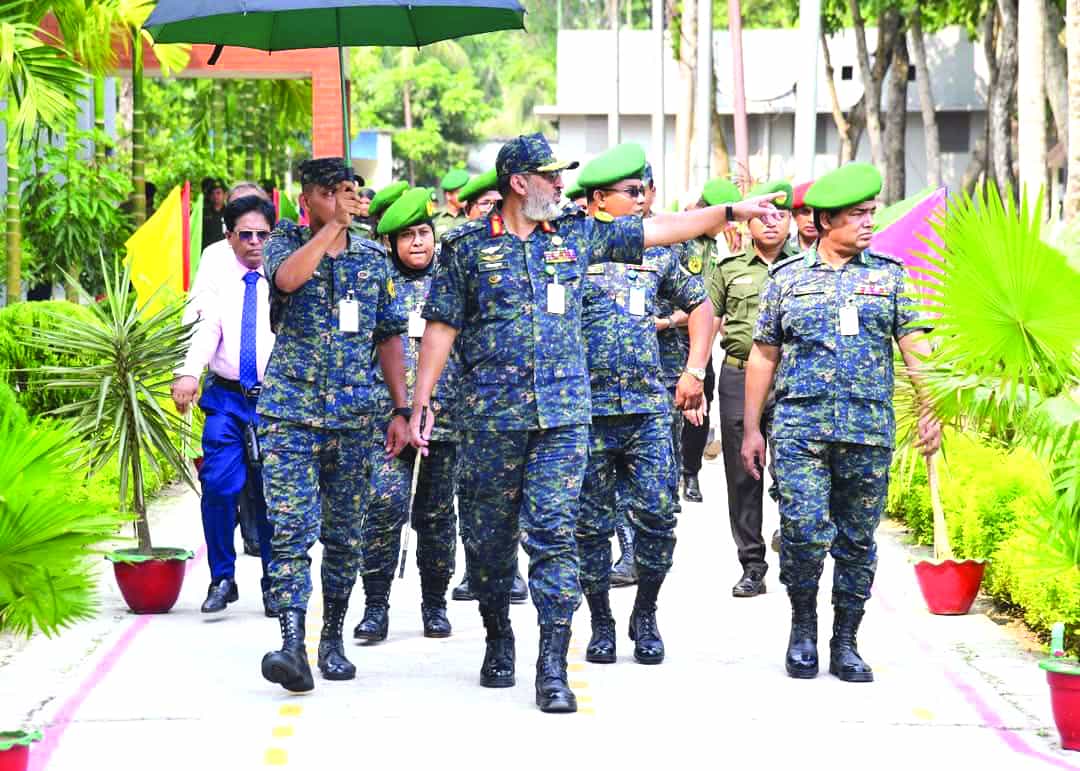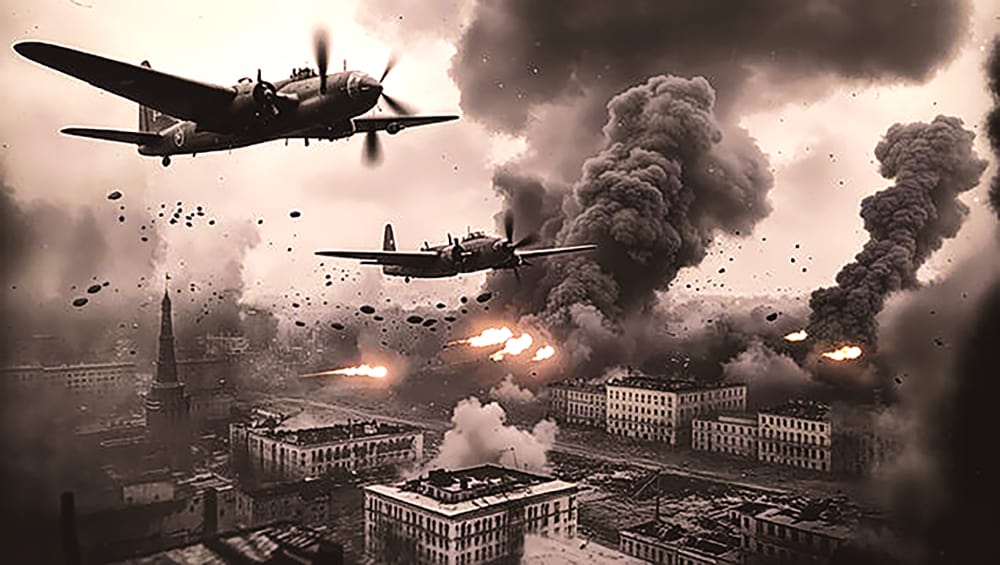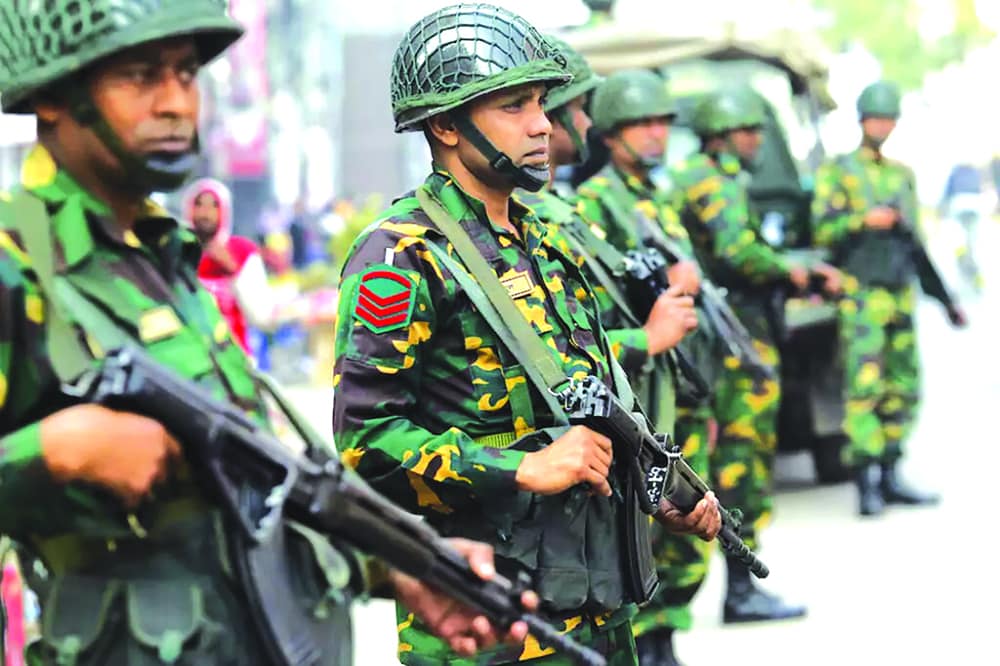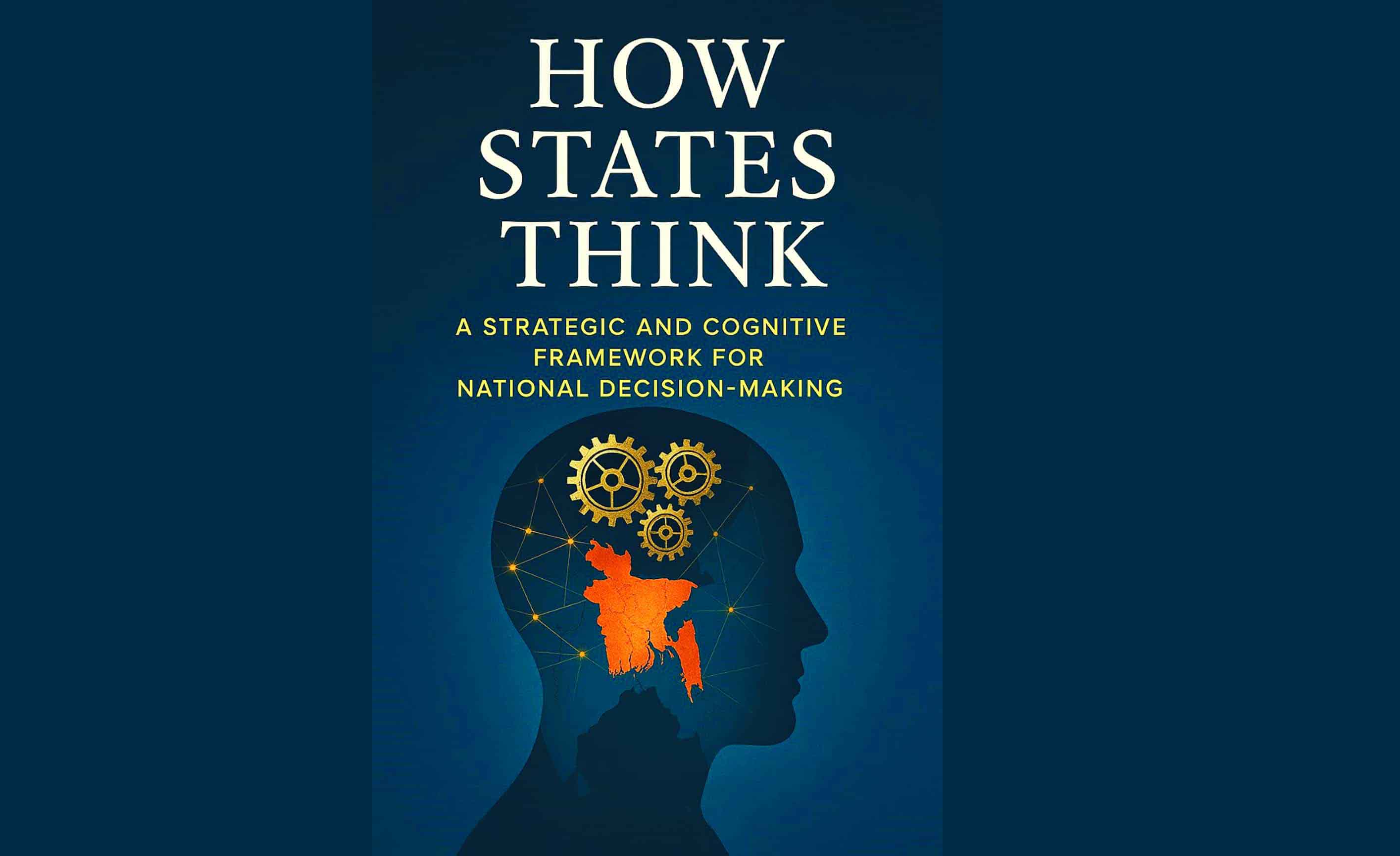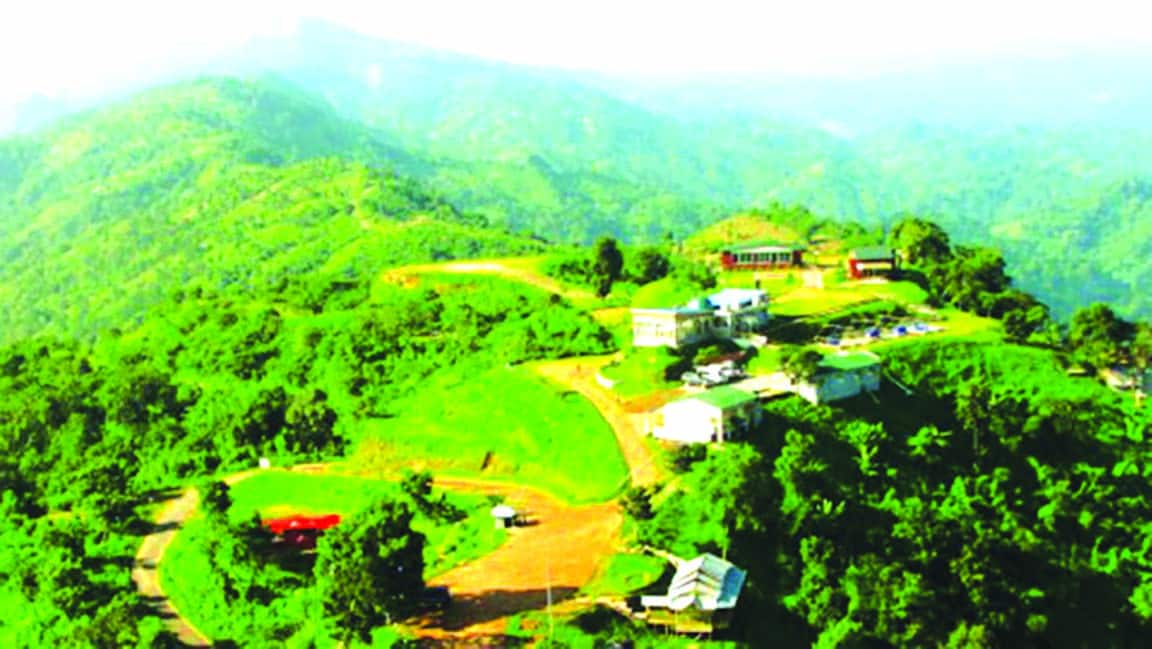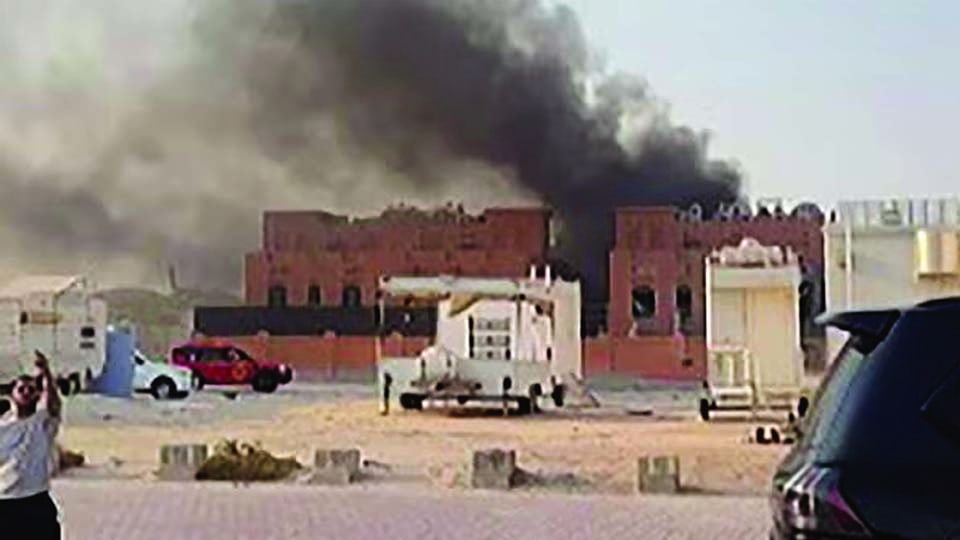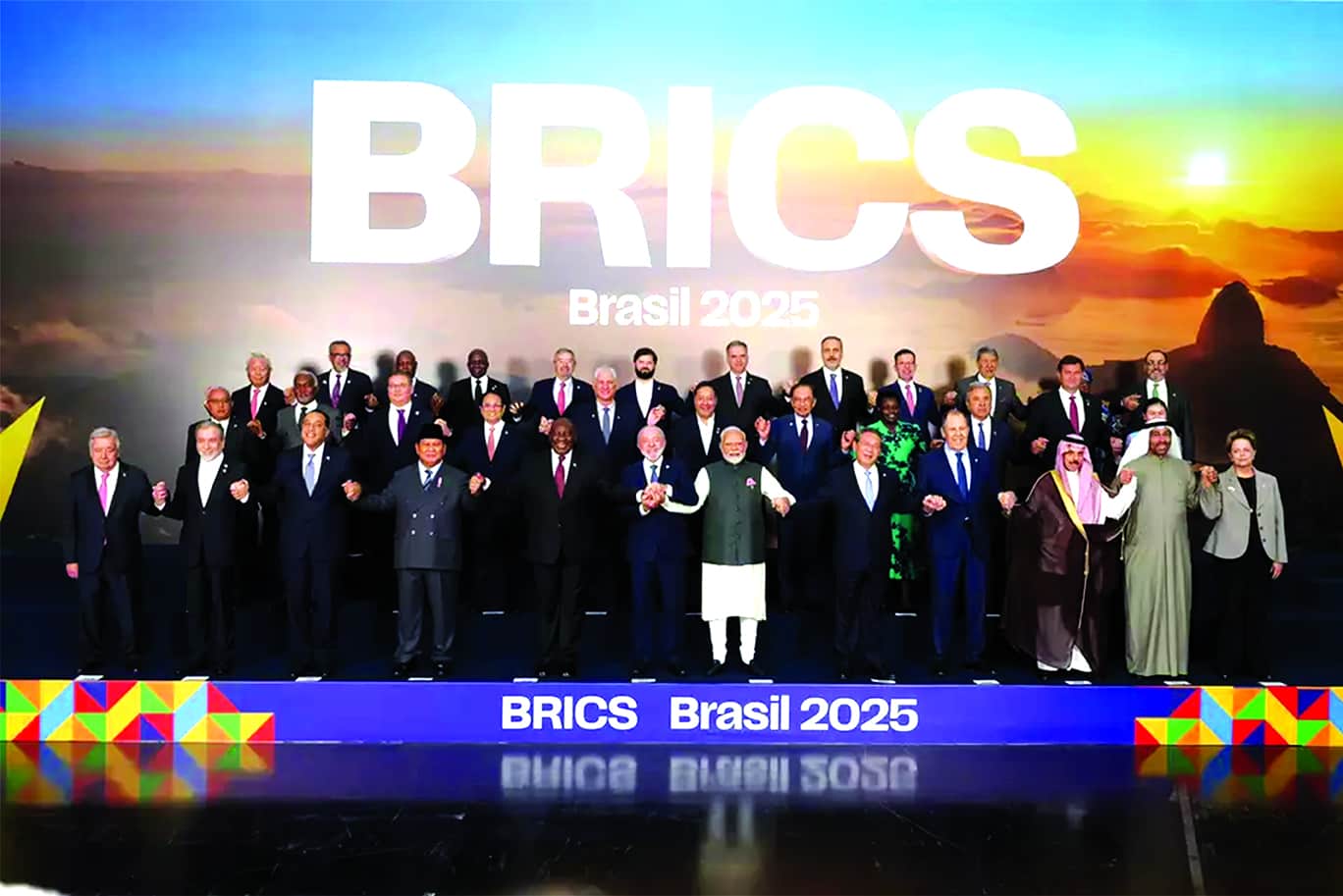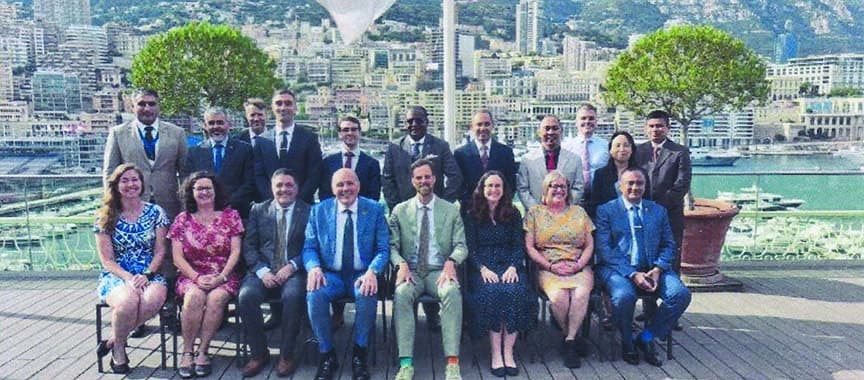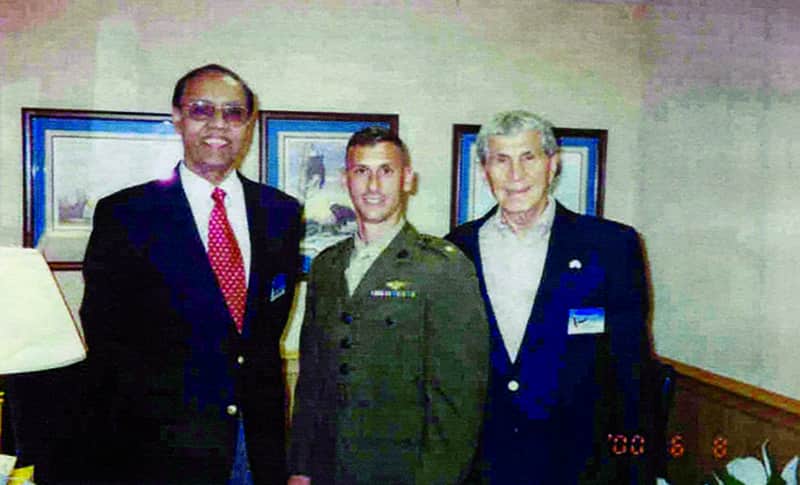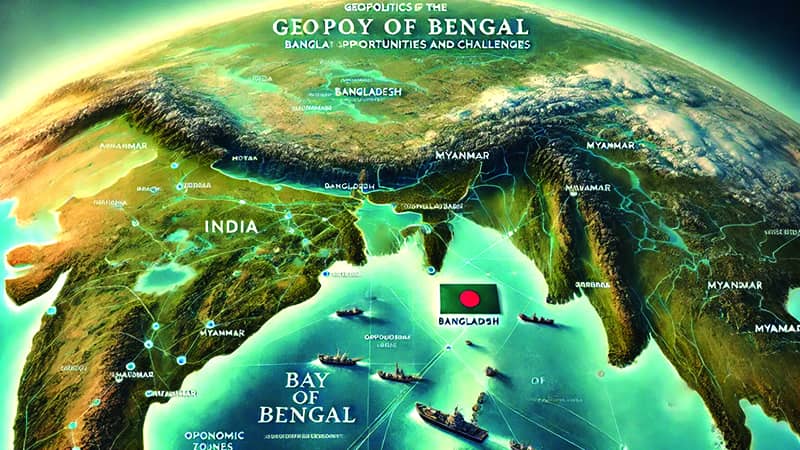National Interests, People’s Power and ‘Centre of Gravity’
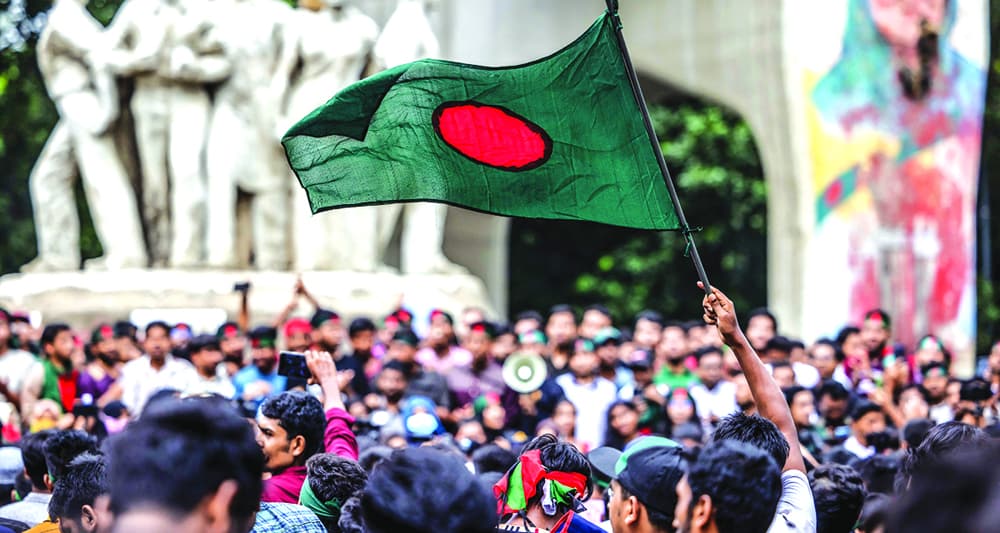
Lt. Gen. Mohd Aminul Karim (Retd.)
A former Lieutenant General of Bangladesh Army, and a Distinguished Professor, Department of International Relations, Bangladesh University of Professionals (BUP), Dhaka. mdaminulkarim1967@gmail.com
Bangladesh is fraught with a web of challenges and threats, both in the domain of traditional and non-traditional existential threats. It’s threats emanate from all realms like land, sea, air and space or even technology. All these threats may emanate from all such realms, most likely all put together, coming in waves after waves, depending on who the predator is. It can be overwhelming, sustained and offensive in nature, tending to engulf the entire country. It will be hard-hitting. It will be highly asymmetric. ‘Future war will be a war about time, not about ground. Conditions of nuclear deterrence will apply, but info‐war and space capabilities will assume greater significance’.
On the non-traditional side, it covers areas like climate change, Rohingya refugee issue, blue economy in the Bay of Bengal, sea level rise, social and political disharmony, economic deprivations and inequality, internal migrations, civil-military relations etc. Some of these are gradually turning into core values of this nation.
On diplomatic front, rival’s diplomatic war efforts may try to make us friendless thus make us supply chain starved. Bangladesh will starve to death if our international supply chains are blocked. Then India Prime Minister Indira Gandhi waged strong diplomatic efforts against Pakistan by visiting many capitals of the world before launching her final offensive campaigns in Bangladesh in December 1971. Diplomatically India did marvels in mobilizing world opinion in her favour. That said, such will not be the fait accompli for us during any prospective war. We have many friends, all weather tested friends like China, Turkey, Japan, Saudi Arabia, Malaysia etc. We have to broaden this limit through extensive diplomatic, economic and cultural exchanges.
In the present day world, it is the smart power— that combines both soft and hard power in right proportion— that calls the shots ultimately. The Ministry of Foreign Affairs and Défense need to work hand in gloves to activate our military strategy at the right time and in right proportion, when the brink time comes. We may go for defence alignment relations with such countries as China, Turkey, Japan, Malaysia, Indonesia, Saudi Arabia and, also, with the United States. Diplomats need to advise the Ministry of Défense on such a proposal. Bangladesh should never go for any defence alliance strategy. That would be suicidal. Because we need to play balancing game well to derive maximum possible dividends from our friends and partners.
We have to create a minimum posture of military conventional deterrence otherwise we may turn into a failed state or get embroiled in pitched battles for years and decades. We will definitely not surrender as our people or youngsters will not let that happen. Such a precarious situation is unlikely to happen anytime soon but as we have a well-trained standing military we have to direct our national resources to that direction in real earnest; however, that may be done slowly and gradually. Frankly speaking, we already have a minimum deterrence posture but looking from technology, logistics, system integration, interoperability and jointness perspectives, we have to cross many more miles. I don’t see three forces’ –all three services including para-military forces—joint field exercises for a long time. I tend to suggest we may go for one in the year 2026. As part of joint operations, we need to practice joint forces amphibious landing as well. There is a good news in the Bay of Bengal we are witnessing a good number of new islands emerging. The blue economy in the Bay of Bengal is our next frontier for sustenance and development.
This minimum deterrence can greatly be augmented if we can integrate most of our able-bodied young boys and girls to fight side by side with the professional soldiers. We just need to train them with essentials of minor operations of war and motivate them enough to make supreme sacrifice as we did in 1971. I tend to suggest here people’s support may be included as a principle of war, if not already done. I remind my august readers here, while I was a field commander and a directing staff at the staff college, we did extensive study and exercises blending conventional and unconventional warfare. You will notice here we are trying to add an element of assertiveness and surprise in our defensive doctrine. This is definitely going to pay us great dividends. This will greatly add to our deterrence value.
So here, again, Bangladesh has to be innovative to find indigenous solutions to offset our limitations. I understand Bangladesh is capable of such innovations as our officers are intelligent, well-educated , well trained and they are the sons of the soil. But now in any warfare technology plays a determining role as was exemplified in the last India-Pakistan, mostly air warfare. Technology and system integration made a phenomenal difference. If I may suggest here we integrate our universities and technical institutes for defence research and innovation? We have to have our own technology to produce drones, unidentified air vehicles, simulators, robots, cyber capability and why not also missiles, if we have resources, someday.
These are our on-going projects that should be developed over a period of time. But we should be most concerned about our national unity and harmony. People’s power is foremost as mentioned and a regular military should fit in appropriately to realize people’s hopes and aspirations.
Thus said, the regular armed forces may be called ‘Centre of Gravity’ for Bangladesh. Identification of centre of gravity varies from country to country. “The centre of gravity may be an economic resource or locality, allied cohesion, the mental and psychological balance of a key commander, or something even more intangible, such as morale or the national will”. We should be more concerned about our morale, and national will and unity. Leadership, both at political and military levels is also critically important. They must combine both visions, charisma, and impeccable values like patriotism, justice, integrity, honesty, morale courage etc.
If our centre of gravity is somehow compromised ; this nation-state may cease to exist as a truly free country. We have witnessed such a nationalistic fervour during the 2024 July Revolution. Military is the most organized institution we have today. Name any emergencies including natural and man-made disasters of the nation from April 1971 to July 2024, the armed forces always came forward as pioneers and as a means of last resort. We should be careful not to play with its destiny, despite it may have many lacunas. As the country is tending to correct itself, military, hopefully, will also follow suit.
Military exercise of the Bangladesh Armed Forces
I implore to all politicians, to the government-of-the-day, to media, to generals, to bureaucrats, to the student leaders, and above all to all the patriotic citizens of this great nation to ensure integrity, unity of command, sustainability, espirit de corps, and vitality of these forces. We are now at a critical juncture of our history. Let us rise above self, group and party interests. Servicing national interests is the most important call of the day today or even tomorrow. Let us learn to sort out our problems ourselves through unity, patriotism and commitment. We welcome many, many friends, but not masters.






